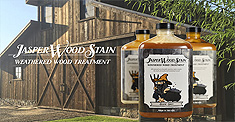Cedar Posts Or Treated Fence Posts? Which Is Best For You?
Treated wood
A treated fence post, as its name suggests, is a type of wooden fence in which chemicals are practically pushed and applied to wood. For many woodworking enthusiasts, this process is also called pressure treating. In this process, chemicals are forced into the wood, so that it can be a bit more resistant against rot, insect damage. This, in turn, will extend the wood’s expectancy as well as maintain its curb appeal.
Pressure treated can be applied to a wide variety of wood, to make it stronger and more desirable. But for the most part, pressure treating is used in pine.
Cedar posts
A 4×4 cedar post is indeed a viable choice, when building posts and fencing. With this option, you get to use fence posts that will last up to fifteen years or even more. Not only is the 4×4 cedar post durable, but it also looks natural and rustic. As time passes by, this woodworking product will fade into an alluring shade of gray or silver, making painting and staining unnecessary.
Key differences
- Pressure treated wood does not absorb as much as stain as a cedar post would do. The more transparent and thinner the stain is, the bigger the differences will be. In some cases, a second coating of stain on the pressure treated wood is enough to make it look nice.
- As far as durability, cedar is by a wide margin better than pressure treated wood
- Unlike treated wood, cedar does not require chemical treatments or additional staining since it is naturally resilient. But, chemical treatments can still be applied to this wood if desired or needed
- Both fencing options respond well to nails and screws. However, the chemicals in a treated wood can corrode screws and nails.






